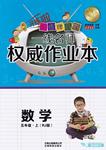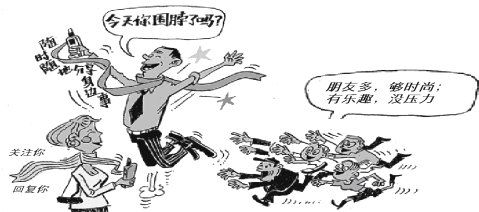题目内容
8.We all use money every day.It is essential because we can pay money for whatever we want.Money is recognized as banknotes and coins.However,many years ago people couldn't go to the shop and buy what they wanted.They had to get what they wanted through the barter trade(实物交易).It was really difficult,for the barter often depended on coincidence of wants.For example,the seller of grain has to find a buyer who wants to buy grain and who also could offer something the seller wants to buy.And one more example,if a wheat farmer needs what a fruit farmer produces,a direct exchange is impossible because seasonal fruit would spoil before the grain harvest.The solution is to trade fruit for wheat indirectly through a third intermediate commodity(中间的商品),such as cattle,salt,shells,wine.However,commodity money had their disadvantages.For example,cattle,fur,precious stones couldn't be cut into smaller pieces and it was inconvenient to keep and transport them.Thus coins were invented.
The earliest known coins in the western world came from Lydia in about 650B.C.Greek cities,the Great Persian Empire and Roman Empire quickly adopted the new useful technique of metal currency.And by the end of the 6th century,coinages were common throughout the region.However,coins as well as commodity money had many disadvantages.For instance,coins quickly show wear(磨损) and they usually have small value,so it's difficult to count large sums of coins.
At first,paper money was used in China in about 650A.D.After then,it was used in Persia and Japan.In Europe,paper money was firstly produced in the Netherlands in the 16th century and in the USA in the 17th century.Paper money is worthless but symbolic.In other words,paper money is just a note.It has a purchasing power because the government announces it as money and citizens accept it universally.
28.The writer explains the difficulty of barter trade byB.
A.telling stories
B.using examples
C.presenting a theory
D.making a comparison
29.What do we know about the early coins?C
A.They usually had large value.
B.They were first used in Greece.
C.They still had many disadvantages.
D.People didn't like the metal currency.
30.Paper money was used earlier inD.
A.Rome
B.Greece
C.the USA
D.the Netherlands
31.What is the passage mainly about?B
A.Function of money.
B.History of money.
C.Invention of money.
D.Types of money.
分析 本文属于说明文阅读,作者通过这篇文章向我们介绍了钱币发展的历史过程,先有物物交易,到后来发展到硬币以及纸币.
解答 28.B 细节理解题,根据第二段For example,the seller of grain has to find a buyer who wants to buy grain and who also could offer something the seller wants to buy.可知作者列举了两个例子来说明实物交易很困难,是通过举例说明的方法展开叙述的,故选B.
29.C 细节理解题,根据第三段However,coins as well as commodity money had many disadvantages.For instance,coins quickly show wear(磨损) and they usually have small value,so it's difficult to count large sums of coins.可知早期的硬币也有很多不足之处,故选C.
30.D 细节理解题,根据最后一段In Europe,paper money was firstly produced in the Netherlands in the 16th century and in the USA in the 17th century.Paper money is worthless but symbolic.可知欧洲地区最先使用纸币的是荷兰,荷兰在16世纪开始使用纸币,而美国是在17世纪开始使用的,故选D.
31.B 主旨大意题,本文主要向我们介绍了钱币发展的历史过程,先有物物交易,到后来发展到硬币以及纸币,故选B.
点评 考查学生的细节理解和推理判断能力.做细节理解题时一定要找到文章中的原句,和题干进行比较,再做出正确选择.在做推理判断题时不要以个人的主观想象代替文章的事实,要根据文章事实进行合乎逻辑的推理判断.

 培优好卷单元加期末卷系列答案
培优好卷单元加期末卷系列答案 一线名师权威作业本系列答案
一线名师权威作业本系列答案| A. | cheered up | B. | turned up | C. | dressed up | D. | brought up |
The reason for this is that(44)Cwe try to change how we feel by using something outside of ourselves,like winning the lottery,or getting a new car or house,it never(45)B.The resulting feelings of happiness are often fleeting(飞逝的).We cannot (46)A them for very long.In some way,it may be a good thing.It reminds us that happiness really does come from within and is(47)Dto us at any moment.True happiness has(48)C to do with what is happening outside,it is an inside job.Happiness is a(49)A.
We can make the decision to be happy for one day,when we(50)Din the morning,every morning.We can find something that brings us great(51)B,like sitting outside in the garden under an old tree and(52)C the birds sing,or watching the dog or cat play,and just(53)A the moment.It is our(54)Dstate and we need only allow it in.At any moment,we can(55)B,take a deep breath,and remember who we really are,and why we came here,and that truly is to(56)C joy and the aliveness of being.
"Happiness is like a butterfly which,when run after,is always(57)A our reach,but,if you will sit down(58)D,it may fall upon you,"said Nathaniel Hawthorne,an American novelist.So,today,no matter what is going on in your own(59)C,stop and take a few moments to breathe deeply and just(60)Bto be happy,whatever that means to you.
| 41.A.clever | B.happy | C.lucky | D.cautious |
| 42.A.positive | B.unusual | C.constant | D.previous |
| 43.A.thought | B.suspected | C.promised | D.recognized |
| 44.A.anyhow | B.anywhere | C.anytime | D.anyway |
| 45.A.changes | B.works | C.forms | D.appears |
| 46.A.keep | B.control | C.blame | D.guide |
| 47.A.similar | B.consistent | C.sensitive | D.available |
| 48.A.much | B.some | C.little | D.enough |
| 49.A.choice | B.chance | C.result | D.reward |
| 50.A.stand up | B.look up | C.turn up | D.wake up |
| 51.A.success | B.pleasure | C.surprise | D.worry |
| 52.A.making | B.helping | C.listening to | D.calling on |
| 53.A.enjoy | B.spend | C.save | D.waste |
| 54.A.special | B.common | C.accurate | D.natural |
| 55.A.stay | B.stop | C.leave | D.arrive |
| 56.A.change | B.forget | C.experience | D.accept |
| 57.A.beyond | B.within | C.through | D.against |
| 58.A.noisily | B.completely | C.carefully | D.quietly |
| 59.A.mind | B.heart | C.life | D.body |
| 60.A.pretend | B.decide | C.agree | D.hesitate. |
